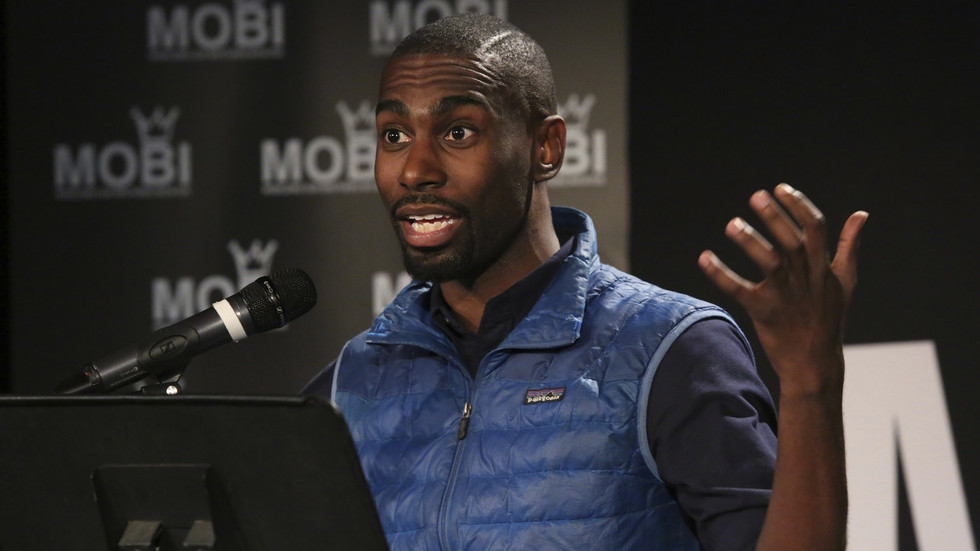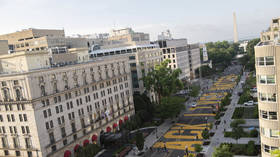
Critics argue the ruling sets a dangerous precedent threatening free speech and right to assembly

File photo: US civil rights activist DeRay Mckesson, October 21, 2017. © Sean Drakes/Getty Images
A Louisiana police officer will be allowed to press charges against BLM organizer DeRay McKesson after losing several teeth and suffering brain damage during a civil rights protest, the US Supreme Court has ruled.
In July 2016, McKesson led a Black Lives Matter demonstration in Baton Rouge over the fatal police shooting of an armed black man named Alton Sterling. During the protest, Officer John Ford was injured by a rock or piece of concrete thrown by one of the activists, who has remained unidentified.
Ford’s lawsuit claimed McKesson should have known the protest would turn violent when it started and is therefore liable for his injuries. Initially dismissed by a district judge, it was revived last year by the Fifth Circuit Court of Appeals. The Supreme Court on Monday declined to hear McKesson’s appeal.
McKesson was arrested by Baton Rouge police on the day of the protest but was later released and charges against him were dropped. In November 2016, the city paid out a $100,000 settlement to 92 activists arrested during the riot, amounting to about $230 a person after legal fees.

Read more
Backed by the American Civil Liberties Union (ACLU), McKesson had argued before the Fifth Circuit that he was engaging in free speech and assembly activities protected by the First Amendment to the US Constitution. In a 1982 case involving black civil rights activists in Mississippi, the Supreme Court ruled that participants in such activities were shielded from liability arising from the conduct of others.
The appeals court rejected this line of argument, though one dissenting judge invoked Dr. Martin Luther King Jr’s 1965 march in Alabama and said that political upheavals – from marches to riots – have “marked our history from the beginning.”
Judge Don Willett argued that the majority’s legal theory “would have enfeebled America’s street-blocking civil rights movement, imposing ruinous financial liability against citizens for exercising core First Amendment freedoms.”
The ACLU has warned that the ruling could set a precedent, making it easier to sue protest leaders for illegal conduct of attendees, which would “stifle activism seeking political or societal change,” according to Reuters.
McKesson was one of the early leaders of the Black Lives Matter movement, which claimed that police across the US were racist and too aggressive towards African Americans. The district judge that rejected Ford’s initial lawsuit had argued that Black Lives Matter is an idea and not an entity, and therefore can’t be sued.




